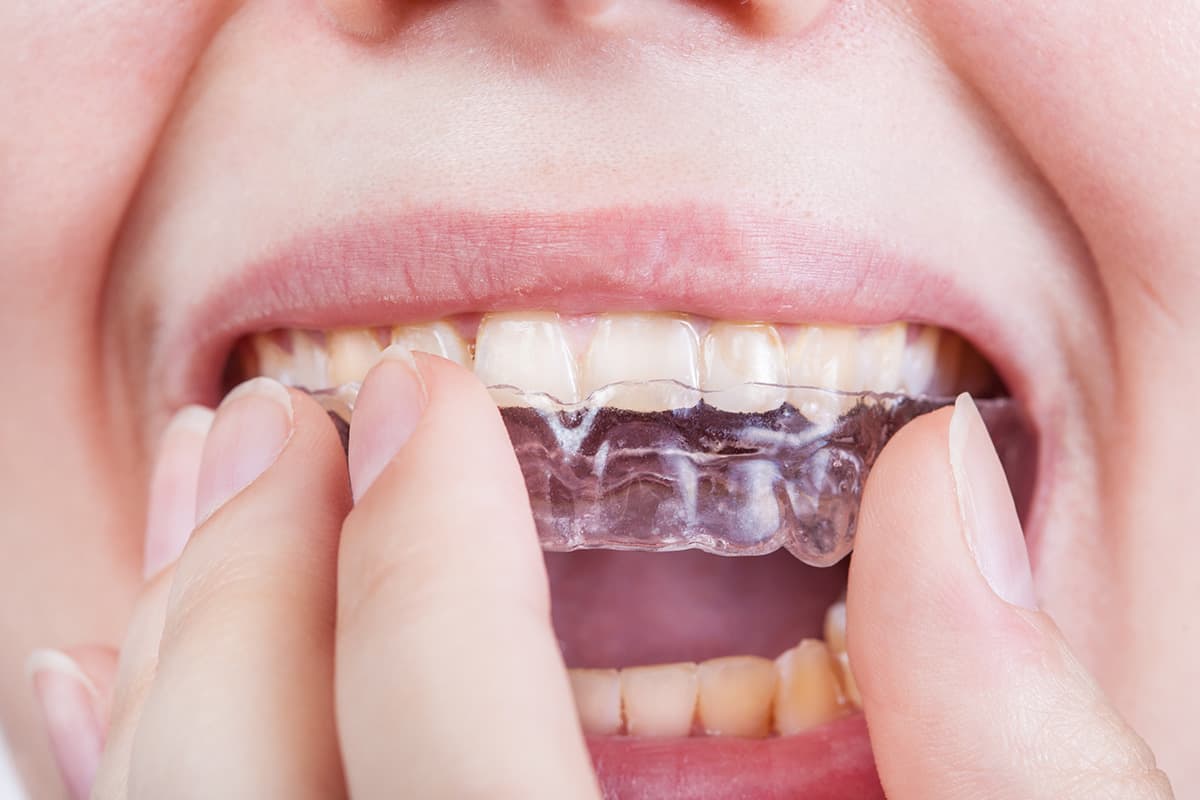Grinding and clenching teeth can destroy the enamel and lead to adverse health problems like jaw pain. Bruxism refers to a condition whereby one gnashes or grinds teeth unconscious when awake or asleep. While it has no cure, using a nightguard can help the user achieve nightguard benefits such as reduced morning headaches. If you grind your teeth when sleeping, you can consult Lovett Dental Conroe for a customized mouthguard.
Top Nightguard Benefits
Grinding teeth and clenching jaws for an extended period wears out the teeth surfaces, damages filing, and can lead to chipping. This behavior may also increase tooth sensitivity and cause pain in the ears, neck, and facial muscles. Wearing a well-fitted mouthguard prevents contact and friction between the upper and lower teeth. It also positions the jaws in a manner that allows muscles to relax, which prevents soreness. Moreover, this device helps the user to realize long-term nightguard benefits such as reduced cosmetic dentistry procedures.
Jaw clenching when sleeping can cause breathing difficulties that may lead to snoring. While this habit may not affect the sleeper, it can bother other people in the same or adjacent rooms. A mouthguard prevents contact between the jaws and reduces snoring by increasing free air movement. Other mouthguard benefits include improved sleep patterns and the prevention of sleep apnea.
Types of Night Guards
Learning more about various types of nightguards can help determine the model that suits specific tastes and preferences. Custom impression mouthguards are tailor-made devices created using the impression of a user’s mouth. In most cases, one has to visit a dentist to get this type of mouthguard, but some designs are available online. The most significant benefit of these mouthguards is that they are comfortable and blend with the teeth’ shape and form.
Another type of mouthguard is boil-and-bite, consisting of a material that softens when placed in hot water. Once the material cools down, one can bite it down to create an imprint of the teeth. While this type is less advanced than custom impressions, it is less costly and does not need special skills to make.
Stock nightguards are mouthguards that are readily available in pharmacies and retail shops. The most common materials used to make this device are rubber and polyvinyl chloride. Despite being relatively inexpensive, these mouthguards are not available in a wide range of sizes and forms.
How to Select the Right Mouthguard
Selecting the right type of mouthguard can be challenging; hence it is essential to consult a dentist. Taking this step can help in picking the correct type of device based on various considerations. The selected model should meet individual needs and allow a user to achieve the desired mouthguard benefits. It is also vital to consider the mouthguard’s cost and whether your insurance company can cover it.
Cleaning most nightguards involves a simple rinse, but some models may require time-consuming procedures and costly chemicals. So, it is crucial to research the cleaning equipment and methods needed to maintain the device. Other factors to consider when getting a mouthguard include:
- Whether the model is trimmable to achieve a better fit
- Possible side effects of the mouthguard model
- The texture of the material used to make it
- The condition of the teeth
- The level of comfort
Customized Nightguards at Lovett Dental Conroe
Getting the right type of mouthguard can prevent tooth damage and allow the user to realize many nightguard benefits. At Lovett Dental Conroe, we offer a wide range of cosmetic and general dentistry services. Our dentists assess a patient’s needs and the condition of their teeth to create a customized nightguard. Additionally, we educate our clients on how to clean and maintain their mouthguards. Contact Lovett Dental Conroe at 936-760-2400 to schedule an appointment for a custom-made nightguard.







